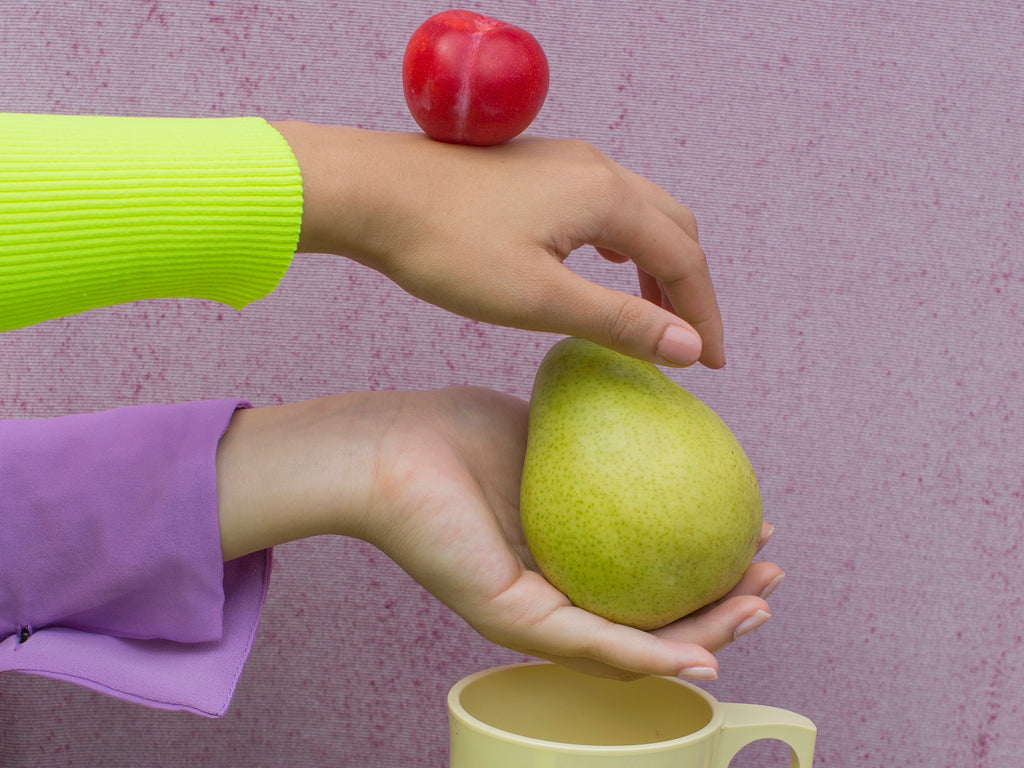“For us it was never a question,” says Issey Kobori, speaking of the decision to build a business with his partner Trinity Mouzon Wofford. At just shy of 27, Kobori and Wofford have secured a host of accolades (including but not limited to a spot on Forbes’ prestigious 30 under 30), thanks to their superfood brand Golde. With three tonic blends, two edible face masks, and their newest product, pure matcha, the company has indisputably made a footprint in the health-meets-beauty space.
When I first met Kobori and Wofford, I was struck by their demeanor. Given the saturated wellness world (where previously unheard of terms like exercise dresses and rose quartz rollers are now common vernacular), I was expecting a pair that was…not so accessible. The duo’s immediately-felt ease was contagious in a way that made their brand that much more appealing. Partners both in business and in life, they started Golde fresh out of college, at the ripe age of 22 (you know, when most people start a business). Juxtaposed with their peers who were adjusting via aperitifs, the two plunged into the novelty of adulthood in a slightly different fashion.
The brand’s foundation is grounded in tight-knit relationships. “We met in our senior year of high school and started dating that year,” says Wofford. “We’ve been inseparable ever since. I think when you’re in business with your significant other there are so many challenges you have to work through. You essentially become a family unit.”

The two had the idea to start Golde when Wofford diverged from her pre-med trajectory at NYU to instead pursue the holistic health industry, an arena she was familiar with after it helped relieve her mother’s struggle with an autoimmune disease. My first memory of Golde’s tonics was Wofford’s explanation of its serving size: two teaspoons a day amounted to one dollar a day (a small investment in your health).
It was refreshing, I thought, to have found a financially acceptable alternative for those of us that might not otherwise engage in the wellness zeitgeist informing our Instagram ads.
Amidst millennial typeface, beige-pink tones, and quasi-genuine socially responsible messaging that permeates the unload of direct-to-consumer brands as of late, Golde stands on its own. Beyond its bolder brand colors, the brand focuses on intimately communicated messages.
“It’s literally me,” says Wofford of Instagram brand-building. “I’m the one writing the captions, and having that truly personal touch is what makes our brand so engaging. We’re a small company and in spite of that – when I’m walking around my neighborhood in Bed-Stuy, or downtown in the city – it’s not all that infrequent for someone to stop me and say, I love what you’re doing. There’s a small community paying attention, because it resonates. I think that, to me, is something that I could not have predicted, and didn’t expect when I started this company.”

In sum, there’s no strategy team informing Golde; there’s no financial advisory board, either. Wofford describes how the pair built a business based off of the ad hoc “garage to small office to big office” framework. “We didn’t shun fundraising when we launched a business,” she continues. “We didn’t know that was something that people did.”
A year after Golde’s founding, the team was approached by an investor. “That was when we started to explore that possibility and realized it wasn’t a fit for us. That decision ultimately came from being self-aware that we were really young and had no business taking someone’s millions of dollars.” So, Golde continued to be an extension of Kobori and Wofford’s vision: an outlet for spending time with one another, invested in a project (albeit a massive one) that reflected their lifestyle.
Now engaged, the couple currently resides in Brooklyn. They can often be found brainstorming future Golde projects over a warm mug of matcha in a Clinton Hill café aptly called Relationships.
This post is tagged as:
You may also like...
The Latest
People & Places
How Ara Katz is Redefining “Self-Care” as Rooted in Science with Seed
The co-founder, mother, and self-proclaimed serial entrepreneur unpacks her philosophy on what it means to be well. Ara Katz hates the word “success”. Not because of its listed definition in a di...

Do Good Werk
9 Passive-Aggressive Email Phrases That Are Basically Evil
A Rosetta Stone for every time you want to :’).

Woo Woo
Get to Know Your Astrological Birth Chart
How to find meaning in the stars — and what it means for you.

People & Places
The 5 Best Places In New York To Meet Your Next Investor
Where to rub shoulders with the city's movers and shakers.

Do Good Werk
10 Unhealthy Thoughts You Convince Yourself Are True as a Freelancer
If you work alone, you might be particularly susceptible to distorted thoughts that hurt your mental health.

People & Places
Creating a Conference-Meets-Summer-Camp for Adult Creatives
An interview with Likeminds founders Rachael Yaeger and Zach Pollakoff This past September, I sat in front of an obituary I wrote for myself after a session with a death doula. No, I didn’t know w...

Better Yourself
Are They Toxic? Or Are They Human?
There’s a difference between putting up boundaries and putting up walls, and the latter is what breaks relationships.

Do Good Werk
How To Combat Seasonal Affective Disorder At Work
Here’s what to do if seasonal affective disorder starts to take a toll at the office.

People & Places
Reclaiming Womxn's Wellness Spaces from a White-Dominated World
How The Villij built a collective that their community can connect to.

Better Your Werk
Goal Setting You Can Actually Feel Good About
A how-to guide on how to find the satisfaction you're searching for.





